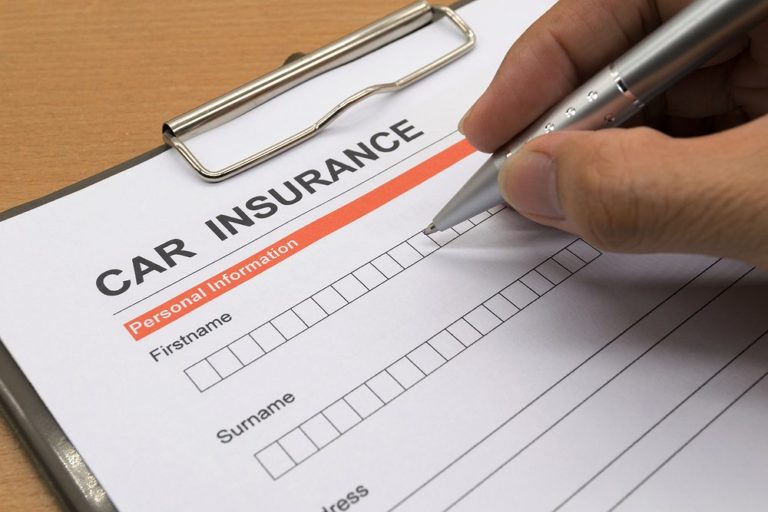Your driving record plays a significant role in determining your car insurance premiums. Insurers evaluate your history on the road to assess risk and calculate how much you’ll pay for coverage. A spotless driving history can lead to lower costs, while traffic violations and accidents may result in higher rates.
Understanding how your record affects car insurance can help you take proactive steps to manage your premiums. This guide explores the relationship between driving behavior and insurance costs, factors that influence your rates, and tips for maintaining an affordable policy.
What is a Driving Record?
Your driving record is a detailed report that includes your history of traffic violations, accidents, and other infractions. This report is maintained by the Department of Motor Vehicles (DMV) or a similar agency in your state. Insurers use it to assess your driving habits and predict your likelihood of filing claims.

The report typically includes:
- Tickets for speeding or other violations
- At-fault and not-at-fault accidents
- DUI or reckless driving charges
- Points assigned for various offenses
Each state has its own system for tracking these details, but the general purpose remains the same: to evaluate risk.
How Insurers Use Driving Records
When determining premiums, car insurance providers review your driving record to assess your risk profile. Drivers with clean records are considered less likely to cause accidents or file claims, leading to lower costs. Conversely, those with frequent violations or accidents are deemed higher-risk and face steeper premiums.
The frequency, severity, and recency of infractions are critical factors. For example, a single speeding ticket from five years ago may have little impact, but multiple recent violations can drastically raise your rates.
Types of Infractions and Their Impact
Not all driving infractions affect your car insurance equally. Here’s a breakdown of common offenses and how they influence premiums:
Speeding Tickets
Speeding is one of the most common violations. Insurers view it as an indicator of risky driving behavior. The impact of a speeding ticket on your rates varies depending on how far over the speed limit you were and whether it’s a recurring issue.
Accidents
Being at fault in an accident has a significant impact on your premiums. Insurers may increase your rates for several years after the incident. Even if you’re not at fault, frequent claims can raise concerns about your risk level.
DUI or Reckless Driving
Driving under the influence or engaging in reckless behavior is a serious offense. These violations can lead to substantial premium hikes and may even result in policy cancellation. Drivers with DUIs often need specialized high-risk insurance, known as SR-22, to regain coverage.
Minor Violations
Infractions like running a stop sign or failure to yield may have less impact than major offenses but can still contribute to higher premiums if they occur frequently.
Points System and Insurance Rates
Many states use a points system to track driving infractions. Accumulating points can lead to license suspension and higher insurance costs. Each violation adds a specific number of points to your record, with more severe offenses carrying higher point values.
Insurance companies consider these points when calculating premiums. Drivers with fewer points are rewarded with lower rates, while those with numerous points face increased costs.
The Role of Accident Forgiveness
Some insurers offer accident forgiveness as part of their policies. This feature allows drivers to avoid a premium increase after their first at-fault accident. However, it typically comes with conditions, such as a clean driving history for a specified period.
Accident forgiveness can be a valuable benefit for maintaining affordable rates, but it’s not a universal offering. Be sure to check with your provider to see if it’s available.
How Long Infractions Stay on Your Record
The duration that infractions remain on your driving record varies by state and type of violation. Minor offenses may disappear after a few years, while serious ones like DUIs can stay for a decade or longer.
Insurers often look at your driving history over the past three to five years when determining premiums. Maintaining a clean record during this period can help you secure lower rates.
How to Improve Your Driving Record
If your driving record is less than perfect, there are steps you can take to improve it and reduce your car insurance premiums.

Drive Safely
Adopting safe driving habits is the most effective way to maintain a clean record. Obey traffic laws, avoid distractions, and stay vigilant on the road.
Attend Defensive Driving Courses
Many states offer defensive driving courses that can remove points from your record or qualify you for insurance discounts. Completing these courses demonstrates your commitment to safe driving.
Monitor Your Record
Regularly checking your driving record allows you to spot inaccuracies and ensure all information is up-to-date. Correcting errors can help you avoid unnecessary rate increases.
Consider Usage-Based Insurance
Some insurers offer usage-based programs that track your driving habits through a mobile app or device. Safe driving under these programs can lead to discounts, even if your record isn’t spotless.
The Impact of Age and Experience
Age and driving experience also influence how your record affects car insurance costs. Younger drivers are typically charged higher premiums due to their lack of experience, even if they have clean records. Over time, maintaining a safe driving history can lead to significant rate reductions.
State-Specific Differences
Each state has unique rules regarding driving records and insurance. Some states are more forgiving of minor violations, while others have stricter policies. For example, California has a “good driver discount” law that rewards drivers with a clean record.
Understanding your state’s specific regulations can help you navigate the insurance process and make informed decisions about coverage.
The Cost of High-Risk Insurance
Drivers with poor records may be categorized as high-risk by insurers. This designation comes with significantly higher premiums and fewer coverage options. In some cases, you may need to seek specialized providers that cater to high-risk drivers.
Rebuilding a clean driving record is essential for transitioning out of the high-risk category and regaining access to standard rates.
Conclusion
Your driving record is a crucial factor in determining car insurance premiums. A history of safe driving can lead to substantial savings, while violations and accidents can result in higher costs.
By understanding the relationship between your driving history and insurance rates, you can take proactive steps to maintain affordable coverage. Focus on safe driving habits, monitor your record regularly, and explore options like defensive driving courses to reduce points and improve your profile.
Ultimately, a clean driving record not only helps you save on insurance but also contributes to safer roads for everyone.

Leave a Reply